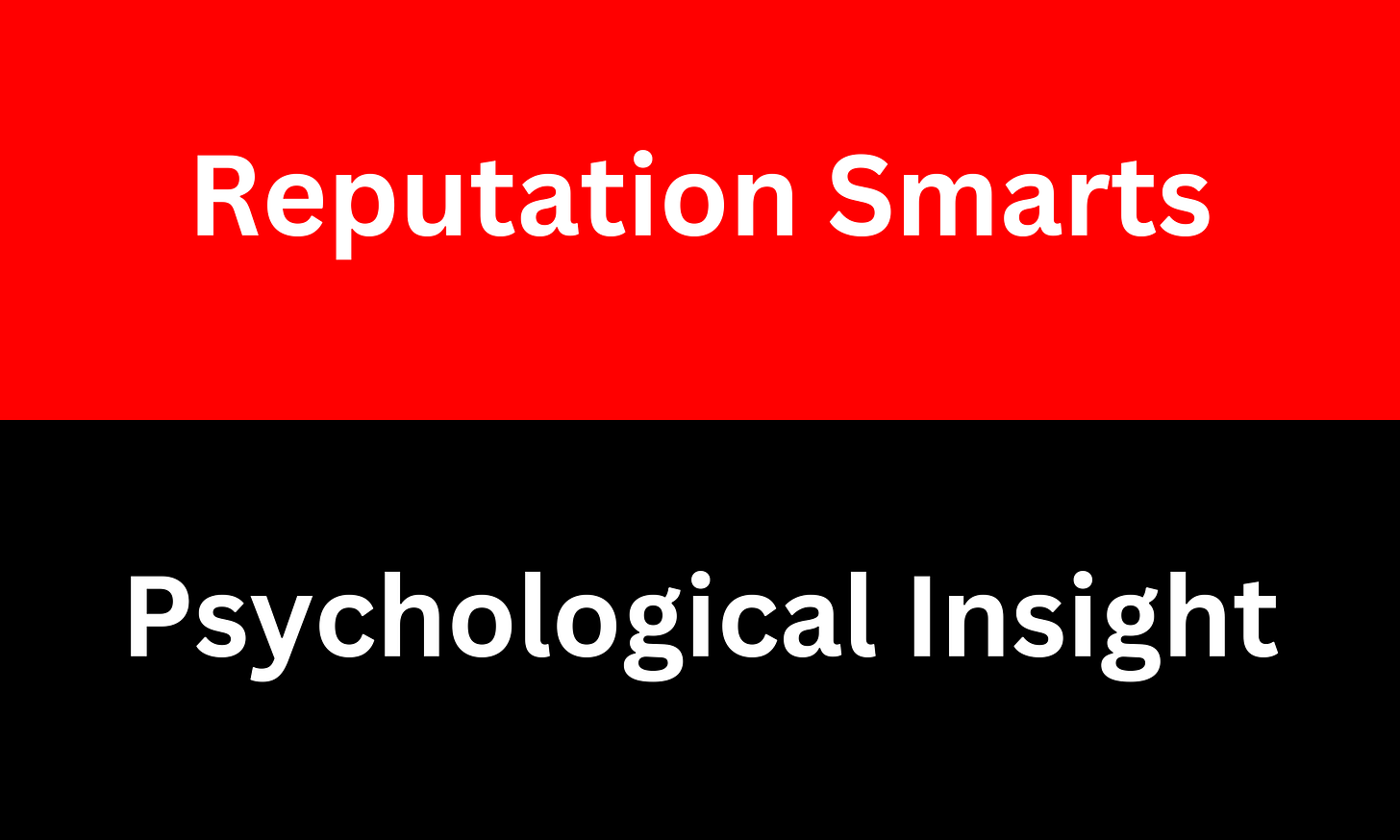Why Emotional Validation is So Important to Our Reputation Well-Being
It's more important than we might realize
Psychologist Guy Winch talked about something recently in his, Get Wrong Do Right Emotional Health Newsletter that I contend, as a reputation consultant and advisor, is linked to smart risk management for your personal and professional reputation.
It’s simple to understand yet not as easy as you might think to put into practice when we should or need to be doing. Let’s first look at what was written in the newsletter and I will provide you important analysis to consider.
“When someone is upset or angry with us, whether justifiably or not, the most productive thing we can do is to validate their feelings,” Winch writes, “because doing so will make them far more receptive to our side of things.”
Is that always our automatic reaction or quickly-reasoned response in emotional situations? I will say, absolutely not. If you believe we do, we can of course agree to disagree.
Let’s move forward if we may as if we don’t get a 100-percent grade for validating other people’s feelings when they are upset with us, justifiably or not.
First, more Winch:
“Unfortunately, we typically respond with defensiveness, justifications and counter attacks in such situations — all of which makes the other person far less receptive to what we have to say,” he says.
I ask myself, how does what Winch communicated not make undeniable sense? Don’t we all have an overabundance of evidence and proof that shows we do react poorly in other people’s eyes to disappointment or criticism towards us instead of validating emotions — and then when we attempt to explain, they are not understanding and accommodating to what we say. Surprise!
I don’t know about you but I have done so way too many times in my life where I proceeded foolishly or hey, stupidly, in reacting to people’s upset with me.
Of course, the people I was engaging with were not always correct in their perceptions, conclusions and judgments towards me but that didn’t matter.
What did matter was how they strongly felt and that I didn’t validate those feelings and thus, guess what? They had zero interest in considering any facts, evidence and reason coming from me, even if they knew it to be factual and true.
So who “won?” It wasn’t me. And maybe you too can say, “It wasn’t me either. I didn’t validate emotions either.”
Our initial reactions or responses with people’s emotional triggers absolutely, deeply affect our reputation with other people in our professional and personal lives — and with strangers.
“Indeed, in last month's poll, over 90% of readers agreed that emotional validation —conveying that we get what the other person is feeling and why they're feeling it — is an effective way to soothe another person's feelings, and yet, over 75% of readers admitted to counter attacking or getting defensive in such situations and 25% admitted to not knowing how to convey emotional validation well to begin with,” Winch writes.
A not-so-small amount of the time, we don’t know how to properly communicate yet in the vast majority of our reactions, we have learned what to do but we don’t bring ourselves to do the right, smart thing, which is to emotionally validate.
We admit, confess, whatever term you want to use, that we react improperly in a way that makes the situation worse for the other person and subsequently, for ourselves.
Ouch and double ouch.
“Emotional validation is a crucial relationship skill and an incredibly useful one for conflict resolution but doing it can feel scary and intimidating,” Winch says.
Yet it is a skill we can and really should develop if we care about other people and selfishly, intelligently value the health of our reputation, today and in the future.
Michael Toebe is a reputation consultant, advisor and communications specialist at Reputation Quality, assisting individuals and organizations with further building reputation as an asset or ethically protecting, restoring or reconstructing it.
He is also the writer and publisher of the Reputation Notes newsletter on the Substack and LinkedIn platforms.
Subscribe for free or subscribe for “extras,” whichever works best for you.
Want your services or products to be seen in Reputation Notes or discuss a partnership? Let’s talk about it to see how you can benefit.
Contact me (Michael) at Reputation.Notes@gmail.com and you and I can talk about your objectives and value offering and create an impressive visual ad and message to prominently, impressively display in the newsletter for a month at a time, or longer.
$475 for an ad for two issues of the newsletter. Links to your About page, landing page or home page are $250 (one issue of the newsletter) per link.
Note
Reputation Quality Services:
Paid Professional Opinion — Consulting — Ongoing Advisory and Communications





